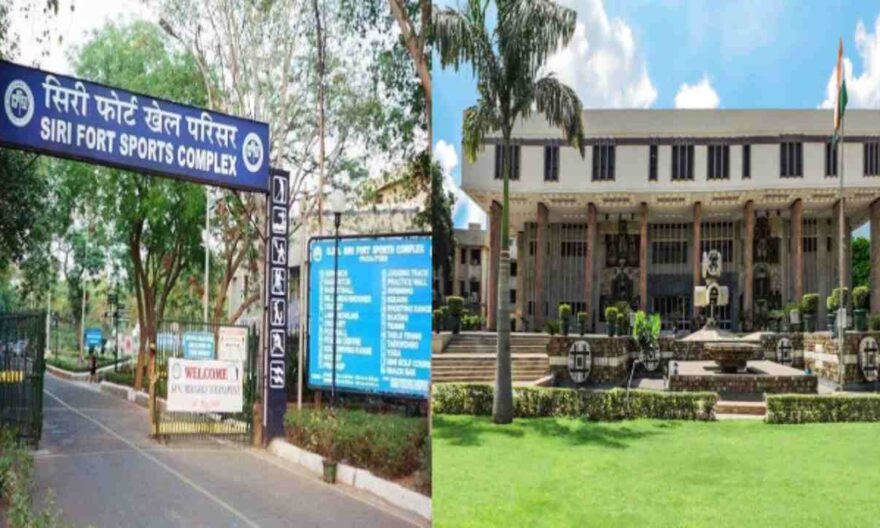
The Delhi High Court has issued an order prohibiting the destruction or alteration of the football and hockey fields at the Siri Fort Sports Complex, which currently have natural grass, and preventing their conversion to artificial turf. Justice Najmi Waziri delivered the judgment on June 30, emphasizing the importance of preserving the greenery in the heart of South Delhi.
The court heard a plea filed by Sudhir Gupta, a senior citizen and permanent member of the Sports Complex, challenging the Delhi Development Authority’s (DDA) plan to convert the fields into synthetic surfaces. The DDA, as the land-owning agency responsible for managing the Sports Complex, had initiated the conversion project through a tender. However, a status quo was ordered on the first day of the hearing in 2020.
The court’s order stated that the DDA must maintain the status quo, ensuring that the football and hockey fields with natural grass remain untouched. Justice Waziri noted that laying artificial turf would cause irreversible damage not only to the fields but also to the surrounding green area and the users of the adjacent walking path.
The court suggested that if the DDA deemed it necessary to have artificial turf, it should consider installing it in a different location without legal protection, as directed by the National Green Tribunal (NGT) and the Supreme Court. However, even in such cases, the DDA must ensure that the artificial turf does not pose a threat to the local ecology. The court emphasized the shared responsibility of protecting the environment for the well-being of all living creatures.
The court concluded that the DDA’s proposed plan to convert natural grass to artificial turf was impermissible and illegal, and therefore, it must be abandoned. It highlighted the significance of preserving green areas in a city like Delhi, serving as essential lungs amidst densely populated residential, commercial, and industrial areas. The court urged for caution and sensitivity to prevent irreversible harm that could affect future generations.
In recognizing the role of land-owning agencies as trustees for future generations, the court emphasized that the city should not lose its green spaces due to rapid concretization in various projects. It underscored the importance of maintaining ecological balance and the environmental equilibrium of neighborhoods for the well-being of the posterity.




